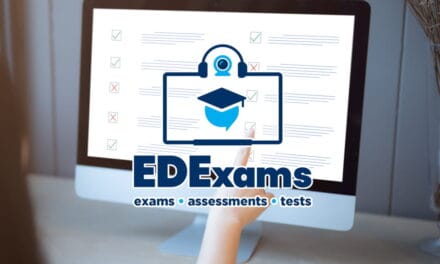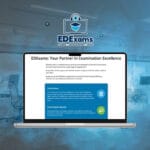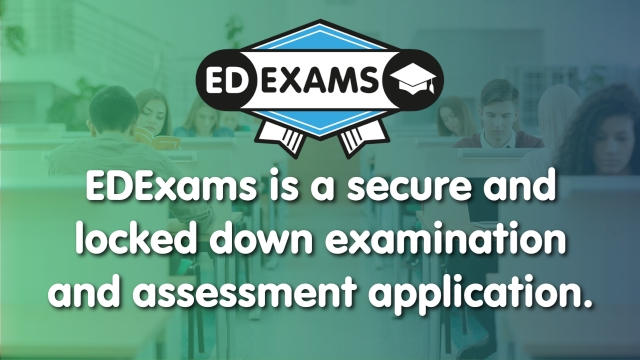In the evolving landscape of education, the days of relying solely on intuition for exam design and improvement are rapidly becoming a thing of the past. Today, data is king, and for institutions committed to delivering high-quality, effective assessments, embracing data analytics is no longer an option but a necessity. EDExams stands at the forefront of this revolution, offering sophisticated data analytics tools that provide unprecedented insights for continuous exam improvement.
Unlocking Hidden Insights from Exam Performance
EDExams’ data analytics capabilities go far beyond simply presenting raw scores. The platform delves into the intricate details of candidate performance, revealing patterns and trends that would otherwise remain hidden. Imagine being able to identify specific questions that consistently trip up a significant portion of candidates, or pinpointing particular topics where understanding is generally weaker across cohorts. This level of granular insight empowers educators and assessment developers to:
- Identify Learning Gaps: By analysing performance on individual questions and topics, you can quickly identify areas where student comprehension is weak. This data can inform curriculum adjustments, highlight topics needing more instructional time, or prompt the development of supplementary learning materials.
- Enhance Question Quality: The tools can reveal statistically significant data about question performance. For example, if a question has poor discrimination (meaning high-ability students answer it incorrectly as often as low-ability students), it might indicate ambiguity or flaws in its design. This allows for precise revisions, ensuring every question effectively measures what it’s intended to.
- Understand Test-Taking Behaviour: Gain insights into how candidates interact with the exam. Are they spending too much time on certain sections? Are there common patterns in how they approach specific question types? This behavioural data can inform decisions about exam layout, time limits, and even test-preparation strategies for students.
Informing Strategic Decisions for Better Exams
The robust analytics provided by EDExams translate directly into informed strategic decisions for your assessment process. This means moving away from assumptions and towards evidence-based refinements in:
- Exam Design and Structure: Analytics can guide decisions on the optimal number of questions, the distribution of difficulty levels, and the overall length of the exam to ensure it is fair, comprehensive, and accurately assesses learning outcomes.
- Curriculum Development and Delivery: When data consistently points to a weakness in understanding a particular concept, it provides clear evidence for adjusting teaching methods, reinforcing key ideas, or redesigning curriculum modules to better support student learning.
- Fairness and Validity: By continuously analysing item performance and candidate responses, institutions can enhance the validity and reliability of their exams, ensuring they are equitable and accurately reflect student knowledge and skills.
Cultivating a Culture of Continuous Improvement
Adopting EDExams’ data analytics tools isn’t just about making one exam better; it’s about establishing a framework for ongoing enhancement. This commitment to data-driven assessment fosters:
- Improved Student Outcomes: Ultimately, better-designed exams lead to more accurate assessments of student understanding, allowing for more targeted support and ultimately, improved academic success.
- Increased Stakeholder Confidence: Transparent, data-backed improvements to assessments build confidence among students, parents, and accrediting bodies regarding the quality and integrity of your educational programs.
- Efficient Resource Utilisation: By understanding exactly where improvements are needed, resources (time, faculty effort, budget) can be allocated more effectively, focusing on areas that will yield the greatest return in terms of assessment quality and student learning.
In essence, EDExams’ data analytics tools are more than just a reporting feature; they are a strategic asset. They provide the clarity and actionable insights necessary to move beyond traditional assessment methods and embrace a proactive, data-informed approach to exam improvement. If you’d like to learn more about EDExams, you can call 01909 384090, email mail@edexams.com or book a free online demonstration here.











